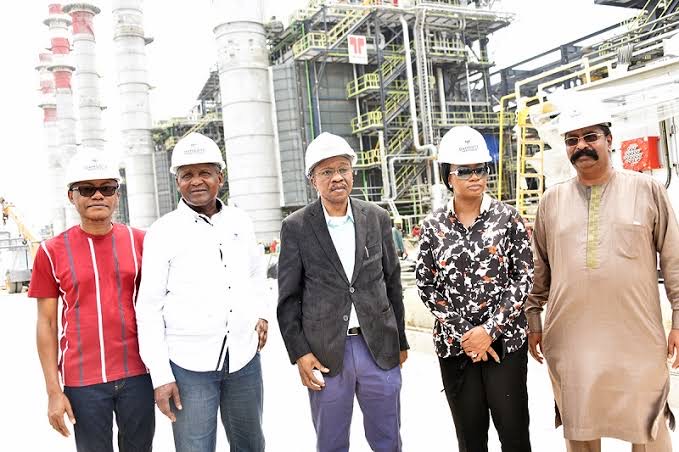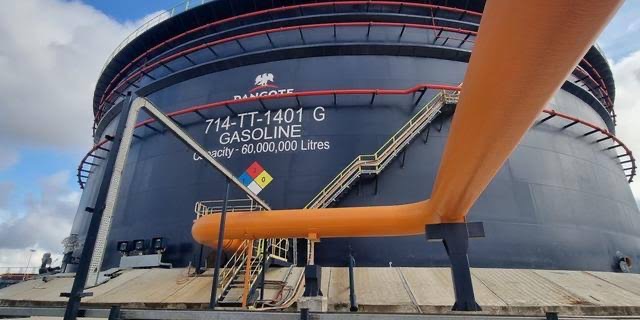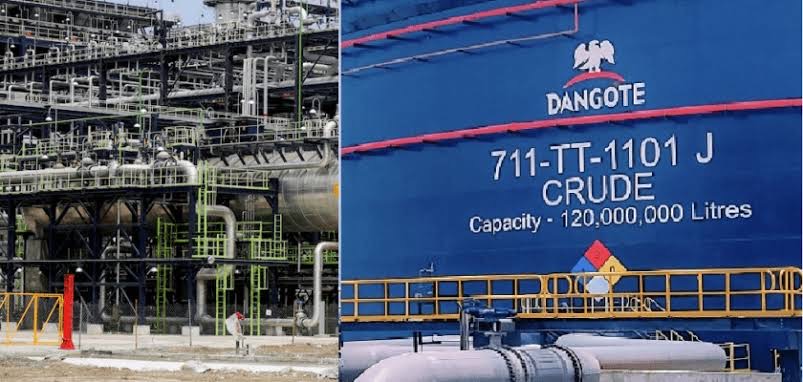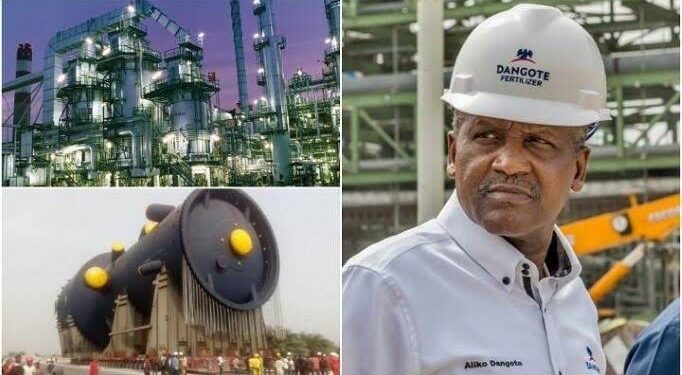Dangote Refinery’s much-anticipated entry into the petrol supply market in July may be delayed due to crude shortages, industry sources have revealed. The 650,000 barrels per day (bdp) refinery in Lekki, Lagos State, was scheduled to start operations in July this year.
The aim is to drastically reduce Nigeria’s dependence on imported petrol. However, concerns are growing that the shortage of readily available crude could affect Dangote’s ability to meet his gasoline refining targets.
“The refinery is yet to receive the required volume of crude oil to refine PMS for the July start,” an oil trading industry source said by phone.
Jade Pratt, country manager for Trade Grid, which supports a vast network of independent traders across Africa, said the Dangote refinery would probably not meet the July deadline.
“The issue of crude oil supply remains a big problem and assumptions on how to sell Premium Motor Spirit (PMS) in US dollars are still being worked out,” Pratt said.
He added, “A safe assumption is August or September at best, December at worst.”
“It is clear that subsidies are still outstanding and the likelihood of a sale to NNPC is diminished as the company is now saddled with accounts receivable for more than 160 days. The Dangote refinery is a commercial venture and given the ongoing costs and interest payments, it is unlikely that this line of credit will be available,” Pratt said.
Kalu Aja, a financial planning expert, asked why Nigeria, Africa’s largest oil exporter, cannot produce enough oil for Dangote.

“If Dangote needs crude oil, the Nigerian National Petroleum Corporation (NNPC) should back Dangote’s 20% investment by providing him with oil capital,” Ajah said.
Hector Igbikiowo, the publisher of Sweet Crude Reports, said the operation of the NNPC refinery was to ensure energy security for the Nigerian nation.
“The question now is why is NNPC not allocating all 445,000 barrels per day to the Dangote refinery for refining,” Igbikiowo asked on a television program.
Attempts to call Femi Soneye, head of communications for NNPC Ltd, were in vain as he did not pick up the phone.
It was widely expected that NNPC Ltd, which holds a 20 percent stake in the project, would meet most of Dangote’s crude oil needs as it sells oil to the refinery, which is located in the Lekki Free Trade Zone. But that may be far-fetched.
In an interview with S&P Global Commodity Insights last year, Dangote Industries Limited Vice President Edwin Devakumar said NNPCL had transferred its crude oil to other companies.

The Dangote Refinery vice president did not disclose which other companies would receive the oil company’s crude, but NNPCL had already announced in August 2023 that it had signed a three-year crude credit agreement with the African Export-Import Bank, which has agreed to a $1 billion credit agreement, which was completed in 2023. To date, Dangote Refinery has only received crude oil supplies from Nigeria and the United States.
However, traders speculate that as the company expands production, it may increasingly explore alternative-term contracts with other sources.
“It is not unexpected that they will try to meet the basic needs of their refineries through term deals, as some Indian refiners are doing with Middle East crude,” an official said.
Nigeria’s position as the continent’s leading oil producer should logically benefit its refineries from abundant supplies. But the reality is quite different.
Nigeria currently has 25 licensed modular refineries. Five of these are operational, producing diesel, kerosene, heavy fuel oil, and naphtha.
Modular refineries are simplified refineries that require significantly less capital investment than traditional full-scale refineries. About 10 of these are in various stages of completion, while the rest have only received construction permits.
The rest are stalled due to the unavailability of crude oil and other issues. “Only about five of our members have completed their refineries. The others are facing huge challenges. The problem is that those who were supposed to provide the funds are not spending the construction funds because they want some guarantee,” said Eche Idoko, spokesman for the Nigerian Crude Oil Refinery Owners Association.
He added, “They want guarantees that they will have the feedstock once the refinery is completed, and that is of course crude oil,” Idoko said.

The Nigerian Upstream Petroleum Regulatory Commission (NUPRC) announced on June 3 that it would engage international oil companies (IOCs) to supply crude oil to the Dangote refinery.
NUPRC spokesperson Olajide Shonola told Journalists that the commission was intervening to ensure local sales of crude oil to Dangote and other refineries in the country.
Shonola said this in response to claims by Dangote Group president Aliko Dangote that international oil majors are reluctant to sell crude to the refinery. “We will intervene again and again. You know we had a meeting with them recently regarding domestic crude oil supplies. We will continue to be in touch with them, NUPRC has already done that,” Shonola said.
“I can’t say we will force them to do it, but as a regulator, we can require them to do it, and we will do that by giving clear instructions that this is what needs to be done. We will continue to engage, and I think you will agree that most of these things need to be planned. We remain committed.” We will carry out a regulatory function in this area,” she said.
































